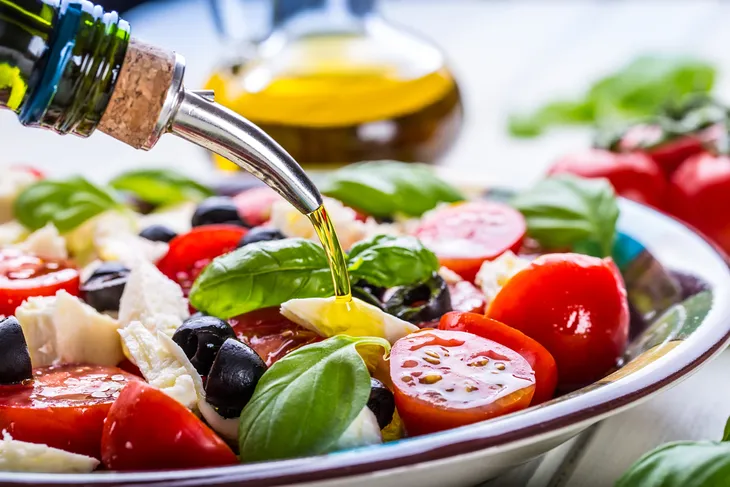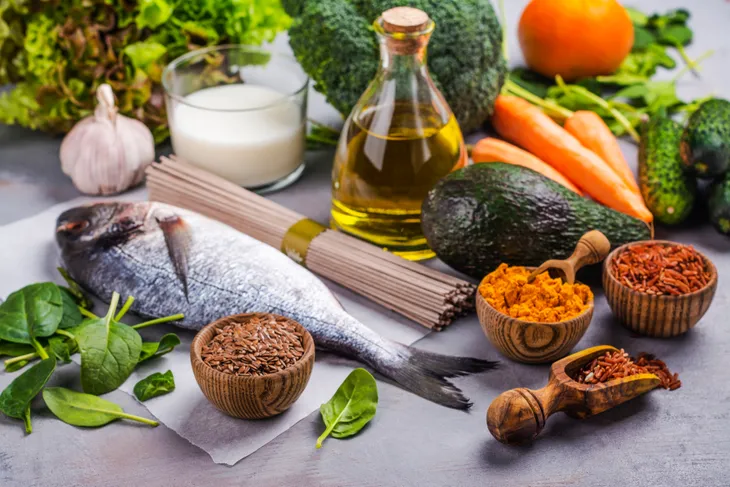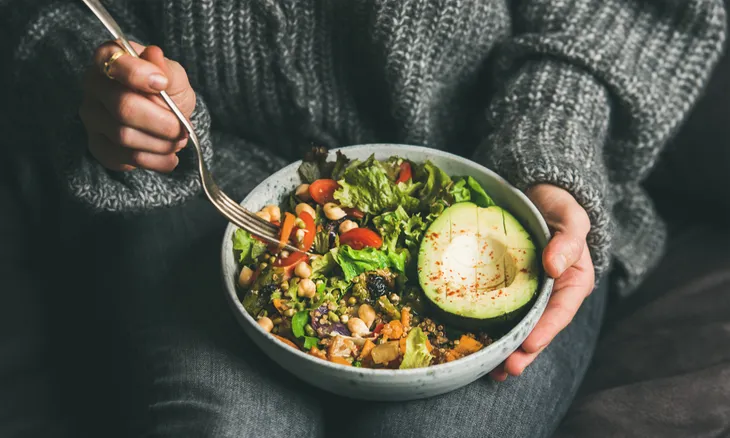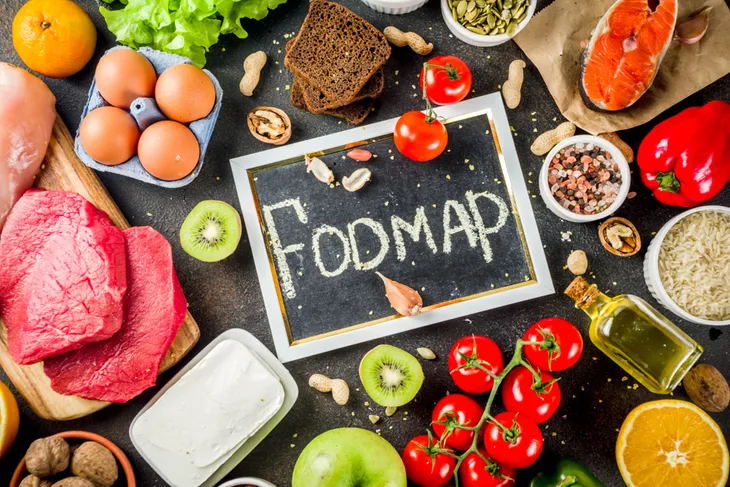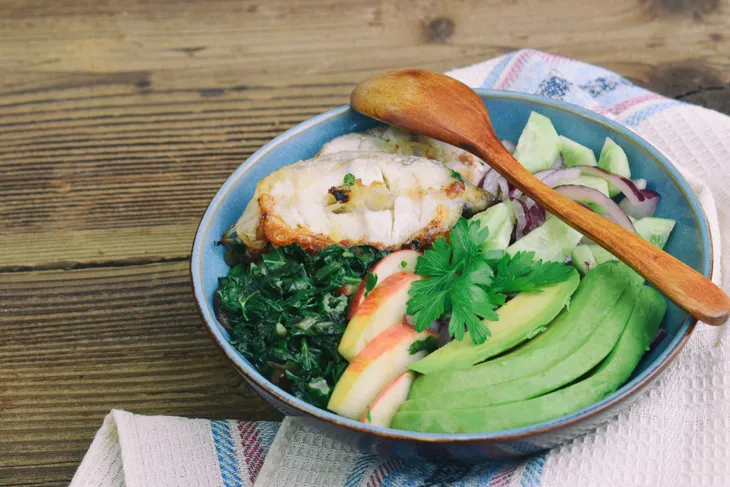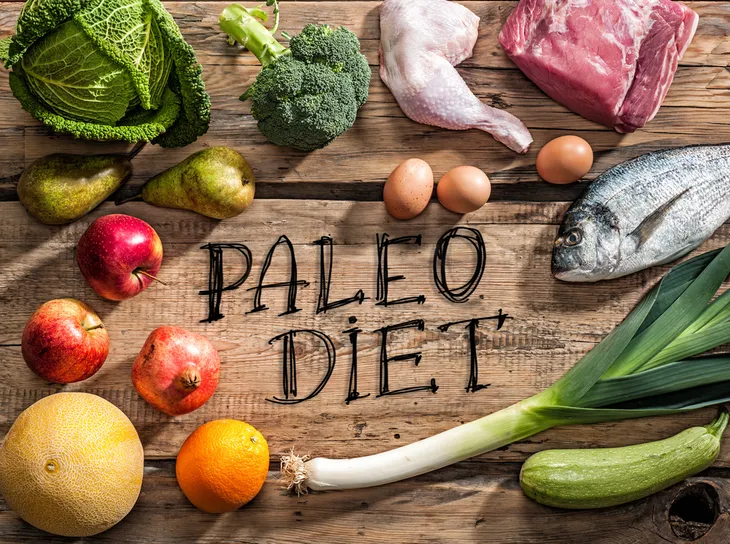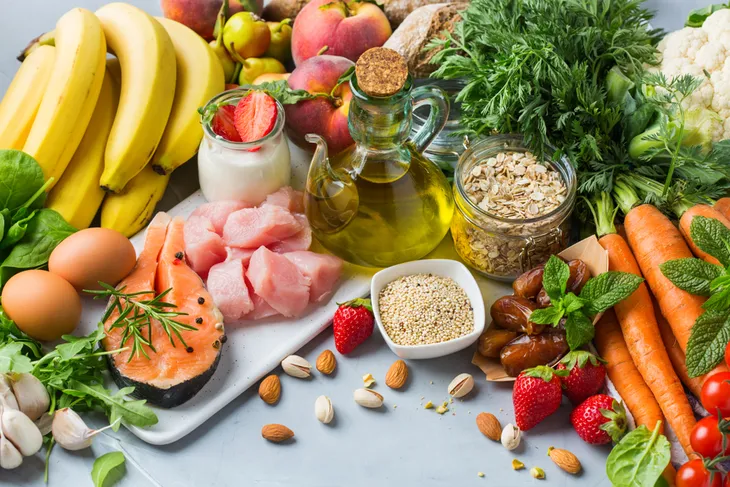- Psoriatic arthritis is a type of chronic arthritis that causes inflammation and pain in the major joints of the body.
- While no diet will cure psoriatic arthritis, certain dietary changes may help lessen the severity of symptoms and reduce your chances of developing comorbidities.
- Before starting any new diet, it’s always important to talk to your doctor to ensure it’s right for you.
Psoriatic arthritis is a type of chronic arthritis that is often linked to the skin condition psoriasis. Just like other types of arthritis, psoriatic arthritis can cause inflammation and pain in the major joints of the body. If left untreated, it may lead to damaged joints. This is why it’s vital that you get the condition under control.
Your healthcare provider will help you come up with an effective treatment plan. Dietary changes may be a part of that plan. Healthline notes that some research suggests that dietary choices can help reduce the severity of the disease. Let’s take a look at 11 diets that may help psoriatic arthritis.
Mediterranean Diet
The Mediterranean diet is known as one of the healthiest diets in the world. In fact, the U.S. News & World Report has ranked it number one on their list of best diets overall for the past 3-years. So what makes it so great?
For starters, the Mediterranean diet focuses on whole foods such as fresh fruits and vegetables, nuts, whole grains, and oils. Processed foods, red meat, and dairy are eaten on rare occasions on this plan. The diet is also rich in omega-3 fatty acids which may help reduce inflammation and joint stiffness, Nilanjana Bose, MD, rheumatologist at the Rheumatology Center of Houston in Texas tells Everyday Health. Another study found that individuals who stuck to the Mediterranean diet also experienced less arthritic pain and disability.
Pagano Diet
John O. A. Pagano, a chiropractor and the author of the book Healing Psoriasis is the creator of the Pagano diet. The diet was created around “the premise that all types of psoriasis are caused by a buildup of toxins in the intestines,” explains Everyday Health. So, what is it exactly and how can it help?
The Pagano diet focuses on fresh, organic fruits and vegetables and small amounts of wild meats and organic greens. All red meats (except lamb), sweeteners, preservatives, additives, fried foods, and processed foods are completely eliminated. Citrus fruits, nightshade vegetables (eggplant, peppers, tomatoes, potatoes), yeast, shellfish, and eggs are also not allowed on this diet. This diet may be effective for reducing symptoms of psoriatic arthritis because the alkaline-forming foods may help reduce inflammation in the body, explains Healthline.
Leaky Gut
The idea of a “leaky gut” has gained attention over the last several years and while it’s not currently recognized as an official syndrome, Healthline says “some researchers have identified that a leaky gut may increase the risks for autoimmune and inflammatory disorders.”
There isn’t an official “leaky gut diet” per se but there are some general guidelines that you can follow such as eating gluten-free grains, sprouted seeds (chia seeds, flax seeds, and sunflower seeds), and nuts. Cultured dairy products (kefir), fermented vegetables, healthy fats, and drinks like kombucha and coconut milk are also encouraged. In contrast, leaky gut sufferers should steer clear of artificial sweeteners, gluten, and dairy.
Vegetarian or Vegan Diet
A vegetarian diet and a vegan diet are similar in that they both focus on eating an abundance of plant foods, such as fruits and vegetables, nuts, seeds, and legumes. What sets them apart is that a vegetarian diet occasionally includes dairy, whereas a vegan diet doesn’t include any foods from animal sources, including by-products such as honey or gelatin.
Some research suggests that individuals who follow a vegetarian diet for 2-years or more may be able to lower levels of C-reactive protein, which is a key marker of inflammation in the body.
It’s worth noting, vegan and vegetarian diets may lack some important nutrients such as vitamin B12, iron, calcium, and protein. This is why it’s important to work with a health professional to ensure you’re getting all the nutrients you need. In some cases, supplements may be necessary.
Low FODMAP Diet
The low fermentable oligosaccharides, disaccharides, monosaccharides, and polyols, (FODMAP) diet is a common diet that doctors typically prescribe to help treat irritable bowel syndrome (IBS). However, some research suggests it may also benefit individuals with psoriatic arthritis, says Healthline.
The low FODMAP diet requires the individual to limit foods that are known to cause gas, stomach pain, and diarrhea. The diet typically works in stages with the first one being the most restrictive. After restricting all high FODMAP foods for several weeks, the individual will move on to the next stage which is reintroduction. During this stage, you’ll start to add foods back into your diet to identify triggers. From there you’ll be able to build a personalized eating plan that doesn’t include your trigger foods.
Gluten-Free Diet
A gluten-free diet involves cutting out all foods that contain gluten, such as wheat, barley, and rye. This meal plan is critical for individuals that have celiac disease or an allergy or intolerance to gluten, however, some individuals choose to adopt it by choice.
Medical News Today says, “Research suggests that people with psoriatic arthritis are more likely to have celiac disease and may benefit from a gluten-free diet.” This is because having an autoimmune condition (like psoriatic arthritis) increases your chances of having another autoimmune condition (like celiac disease). Everyday Health also notes that some individuals with psoriatic arthritis reported having less joint pain after eliminating gluten from their diet.
Keep in mind that when switching to a gluten-free diet you should work with a dietician or nutritionist to make sure you’re getting enough nutrients.
The AIP Diet
Another diet psoriatic arthritis sufferers may want to consider is the AIP diet, also known as the autoimmune protocol. Healthline explains it’s a form of elimination diet that is designed to reduce inflammation in the body.
The AIP diet essentially involves eating meat, fermented foods, and vegetables. There is a huge list of foods you’ll have to avoid, such as dairy, processed foods, grains, refined sugars, and seed oils. The diet is quite restrictive and the source points out that it isn’t intended to be followed long term. If you’ve been instructed to try the AIP diet by a health professional, be sure to follow their guidance.
Paleo Diet
In short, the paleo diet “advocates eating foods like those hunter-gatherer ancestors used to eat,” explains Healthline. This prehistoric approach to eating includes foods like nuts, fruits, veggies, and seeds, and lean sources of protein instead of fatty red meats. The source also points out that the diet emphasizes choosing free-range, grass-fed animals when eating meat.
While the link between the paleo diet and psoriatic arthritis hasn’t been largely researched, the National Psoriasis Foundation, says that some dietary changes (including paleo) may help individuals lose weight, and in turn, may improve psoriatic arthritis symptoms. Everyday Health also points out that the paleo diet is rich in anti-inflammatory foods which may also reduce inflammation in the body.
The DASH Diet
The Dietary Approaches to Stop Hypertension diet, also known as the DASH diet is an eating plan designed to help reduce sodium intake. It’s often recommended to prevent, or treat hypertension. It may also reduce your risk of heart disease.
While there is currently not enough research to confirm the DASH diet will benefit psoriatic arthritis sufferers, there is research that suggests it benefits gout, another type of arthritis. The research found the diet helped reduce serum uric acid which is known to play a role in gout flare-ups.
The DASH diet involves eating plenty of fruits and vegetables, as well as whole grains, low-fat dairy, and lean sources of protein. It also involves eating less than 2,300-milligrams of sodium each day.
Weight Loss Diets
Any weight loss plan may benefit psoriatic arthritis. This typically involves being in a calorie deficit, which means you eat and drink fewer calories than you burn.
WebMD says health professionals aren’t quite sure why it may benefit psoriatic arthritis, however, they do know that “fat tissue releases proteins that cause swelling.” When following a weight loss diet, you’ll typically reduce sugar, fat, and carb intakes and eat more fresh fruits, vegetables, lean protein, and low-fat dairy products. Losing weight may also help reduce your risks of other diseases, such as diabetes and high blood pressure, explains the source.
It’s important that you talk to your doctor to find out what a healthy weight is for you as well as steps you can take to achieve your goals.
The Takeaway
While no diet will cure psoriatic arthritis, “there are many ways in which eating healthful food may lessen the severity of symptoms and play a role in lowering the likelihood of developing comorbidities,” explains the National Psoriasis Foundation. That said, before starting any new diet, it’s always important to talk to your doctor to ensure it’s right for you.
WebMD also notes that along with diet, individuals with psoriatic arthritis should also get regular exercise. Exercise is good for the joints and helps ease swelling and pain. Again, talk to your doctor first, before getting started.

